Theme: Robot Industry in Transition
|
Date¡G October 20,2010¡]Wednesday¡^ Venue: Room 102, Taipei International Convention Center Chairs: Prof. Dr. Erwin Prassler Bonn-Rhine-Sieg University of Applied Sciences, Germany |
||||||||||||||||||||||||||||||
|
| 【Speakers】 |
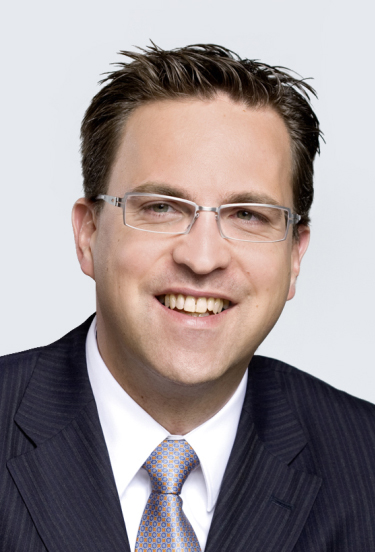 Mr. Henrik A. Schunk
Mr. Henrik A. SchunkPresident and Managing Partner SCHUNK GmbH & Co. KG, Germany |
| Research Collaboration against Backdrop of the Global Economic Challenges |
|
Abstract: Although the global economic situation is relaxing, economic circumstances have changed since the beginning of the worldwide crisis at the end of 2008. The robotic industry has to face these new economic challenges.
Until the end of 2008, we were able to rely on a continuous and predictable economic boom. The predictability of financial growth enabled the flexible deployment of resources, perfectly adapted to the actual situation. In consequence there was a comfortable financial scope for performing risky projects which enabled fundamental innovations - leading to high chances for diversification. Furthermore, risky well funded projects often produce 'surplus' results that spawn further innovation. The result is a self-perpetuating innovation loop.
Since the end of 2008, the predictability of the economic situation has been limited dramatically and resources have to be strictly scheduled. In consequence, there is less financial scope for risky projects, leading to smaller (but more secure) steps of innovation. At first sight, this leads into reduced chances of diversification, decreasing number of following innovations and the break of the innovation loop. Thus, if we are only able to do small steps currently, we need to do them faster if we don¡¦t want to break the innovation loop.
Thus more than ever on the backdrop of the global economic challenges, the robotics industry needs the support of both, In the current situation, there is a high quality of work within research collaborations with highly qualified and motivated research institutions. This is a perfect base for market focused research and developments. However, there are some important issues to be improved to face the new economic situation: Biography: Mr. Schunk received Dipl.-Wirtsch.-Ing. (TU) (Business Studies and Engineering Graduate). He is Managing Partner of SCHUNK GmbH & Co. KG, Manager Business Development / Strategic Sales Development, and Chairman of EUnited Robotics. He was the President SCHUNK Intec Inc., Raleigh, USA and Sales Director Field Sales Germany His latest publication: Keuper, F./Schunk, H. (ed.): Internationalisation of German companies: Strategies, instruments and concepts for medium-sized businesses, August 2009He is member of Rotary International, Advisory Board Business + Innovation Steinbeis Executive Magazine, Advisory Board Electronic Business, Heilbronn University. |
 Dr. Erastos Filos
Dr. Erastos FilosEuropean Commission Directorate-General Information Society and Media, EU, Head of Sector ¡V IMS (Intelligent Manufacturing Systems), Belgium |
| European Activities in Sustainable Manufacturing |
|
Abstract: Manufacturing is still the driving force in Europe's economy. It stretches across more than 25 industrial sectors, largely dominated by SMEs, and generates annually £á 1,535 billion (42 %) of value added. The long-term shift from a cost-based competitive advantage to one based on high added value and sustainability requires a shift in thinking.
At the beginning of the financial and economic crisis an Economic Recovery Plan was proposed by the European Commission which includes measures for research and innovation, facilitated through public-private partnerships in areas such as "Factories of the Future", "Energy-Efficient Buildings" and "Green Cars". There is a clear shift towards "green" technologies associated with these partnerships. The Factories of the Future initiative in particular, aims at improving manufacturing enterprises' technological capability of adapting to environmental pressures and of adequately responding to increasing global consumer demand for greener, more customised high-quality products. It is expected that these accelerated research and innovation efforts will lead to a more demand-driven industry with less waste and lower energy consumption. Whilst European Factories of the Future activities in 2009 included a package of £á 95 million of public R&D investment that was matched by another £á 50 million in private investment, the amount available in 2010 is £á 160 million. The activities cover areas such as: Biography: Within the European Commission's Information Society and Media Directorate-General, Dr Filos is responsible for the coordination of activities related to ICT and manufacturing and manages the European Secretariat of the Intelligent Manufacturing Systems (IMS) initiative, a global international collaborative R&D programme involving industrially led R&D consortia from Japan, Korea, the United States, Switzerland and the European Union (including Norway). He was born in Athens, Greece. After obtaining his MSc in Physics from Hamburg University, Germany, he worked as Researcher at the High-Energy Physics Lab (DESY) in Hamburg. He holds a PhD in Physical Chemistry from Konstanz University, Germany. After eight years of university research he started his industry career as Project Manager at Perkin Elmer Corporation and then as Leader of the Electronics Design team at Bosch Telecom in Heidelberg, Germany. After 15 years of activity in university and industry he joined the European Commission's research programme ESPRIT (European Strategic Programme in Information Technologies) in 1993 as Scientific Officer, in the domain "Computer-integrated Manufacturing and Engineering". The portfolio of projects under his supervision addressed issues such as robotics, concurrent engineering and product and process data modelling. In the successor programme IST (Information Society Technologies), Dr. Filos became responsible for R&D strategy in the Programme's domains "New Methods of Work and Electronic Commerce" and "Components and Systems". |
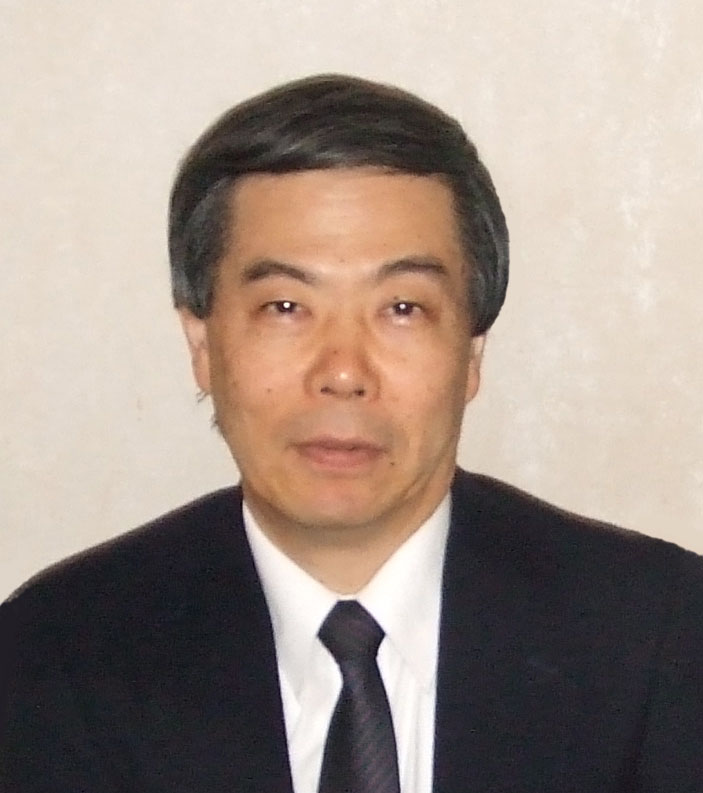 Dr. Shinsuke Sakakibara
Dr. Shinsuke SakakibaraDirector General of FANUC Robotics FANUC LTD, Japan |
| Expectations for Competitive Automation by Industrial Robot |
|
Abstract: Today's manufacturing system is required to realize a production of a variety of products in variable lots in their gradually shortening life cycles. It is also required to realize high quality of products regarding reliability and stability. Recent industrial robots can give appropriate solutions to the above mentioned requests in the manufacturing sector in not only industrialized nations, but also emerging. The latest industrial robots have not only advanced intelligent functions with such sensors as vision and force, but also such super functions as very high speed motion, load capacity exceeding 1 ton, etc. It is very important for the manufacturing sector to utilize such super industrial robots in manufacturing system to survive a global competition. Biography: Dr. Shinsuke Sakakibara (born June 16, 1948) graduated in the department of applied physics at the University of Tokyo, Japan in 1972. He joined FANUC LTD in 1972. From 1972 through 1985, he worked on the exploitation of robot control system. He has been at Basic Research Laboratory of FANUC serving as a manager of research and development group of intelligent robot since 1985. He received his doctoral degree in engineering from the University ofTokyo in 1995. He has been serving as General Manager since 2003 and Honorary General Manager since 2004 of Basic Research Laboratory of FANUC. He has been serving as Honorary General manager of Robot Laboratory of FANUC since 1999. He has been serving as Member of the Management since 2007 and Managing Counselor of FANUC since 2009. He was appointed to President of the Robotics Society of Japan in 2009. |
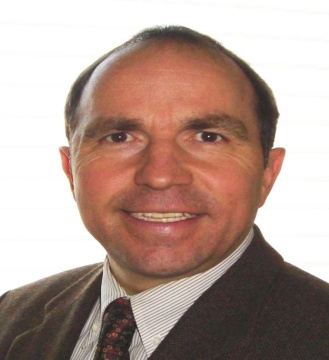 Dr. Martin Buehler
Dr. Martin BuehlerChief Principal Investigator and Director of Research Competency iRobot, Inc., USA |
| Mobile Robots that Make a Difference |
|
Abstract: iRobot is at the forefront of robotics applications that make a difference in people¡¦s lives. Building on the success of existing EOD robot systems and applications to save lives, new opportunities arise for throw-able, pack-packable and high payload capable robots in non-EOD markets. We are seeing a transition from largely tele-operated robots to intelligent and autonomous systems, that increasingly take advantage of advances in academia. Due to communications challenges, increased autonomy also opens up new maritime robotics applications: The iRobot® Seaglider™ supported the “BluePoint” Mission Deepwater Horizon Response in the Gulf of Mexico, searching for underwater oil plumes as well as providing data for 3D mapping. New robot applications and technologies are fed by iRobot¡¦s world class robotics research group that does basic to applied research, and provides opportunities for industry-academia collaboration. To inspire today¡¦s students to become the technology leaders of tomorrow iRobot supports STEM (science, technology, engineering and math) education initiatives. Biography: Dr. Martin Buehler pursued an academic career in robotics (Yale PhD 1990, MIT PostDoc 1990/91, McGill tenured professor 1997) and moved to industry in 2003. He became Director of Robotics at Boston Dynamics, and Chief Engineer for the DARPA Big Dog and other projects. Since 2008 he has been with iRobot, where he is now the Chief Principal Investigator and the Director of Research Competency. He applies his combined industrial-academic background and experience towards leading teams that develop and mature robotics technologies into successful products, to make a difference in people¡¦s lives. |
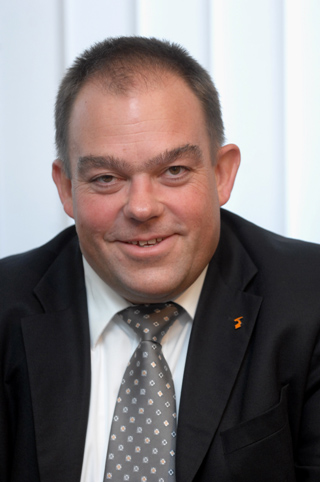 Mr. Bernd Liepert
Mr. Bernd LiepertCTO of KUKA AG Germany EUROP President |
| Societal Challenges and Business Opportunities for Robotics in Industry and Service |
|
Abstract: Ageing society, security, climate change, sustainable production ¡V societal challenges have been heavily discussed recently. Robotics in general has much to contribute to tackle these challenges. European robotics has united in EUROP, the European Robotics Technology Platform with more than 130 members, to address these societal challenges and to identify business opportunities by developing a strategic research roadmap. As coordinator of this platform and one of the world-leading manufacturers of industrial robots, KUKA is well positioned to embark on new business opportunities despite the economic crisis, not only in the industrial robotics sector, but also in the service robotics sector. This talk will report on the societal challenges identified, how robotics is able to tackle them and how KUKA in particular made progress on its way to become a world leading service robot manufacturer. Biography: Bernd Liepert is the CTO of KUKA AG, a world leading manufacturer of industrial robots. He also holds the position of President of EUROP, the European Robotics Technology Platform, which aims to set a common strategy for European Robotics. Mr. Liepert earned his diploma in mathematics in 1990 from the University of Augsburg and has since then worked in changing positions for KUKA. From 1990 to 1996 Mr. Liepert worked as mathematician and developer at KUKA Schweissanlagen + Roboter GmbH before he took charge as head of development of the newly founded company KUKA Roboter GmbH. From 1998-1999 he was a member of KUKA Roboter¡¦s Board of Management, responsible for development and design. From 2000-2009 he was the CEO of KUKA Roboter GmbH. Since 2010 he is the CTO of KUKA AG, responsible for technology and development of the whole KUKA group. |
 Dr. Steve Cousins
Dr. Steve CousinsPresident and CEO Willow Garage, Inc. USA |
| Open Source Robotics |
|
Abstract: Over the next 10 years, personal robots (as opposed to industrial robots) have the potential to improve people's lives by taking automation to a new level. Like personal computers of 30 years ago, the personal robotics industry will take off and become an economic engine. But robotics is a complex, multidisciplinary field, and fielding successful applications requires expertise ranging from hardware (mechanical and electrical) to social science. By working together on an open source software platform, we can accelerate progress in the field and more quickly field successful applications. Willow Garage has partnered with Stanford University and many other top robotics laboratories around the world to create such an open source code base. The robot operating system, ROS, is quickly becoming the de facto platform for robotics research. I will argue that most if not all robotics companies should join the ROS bandwagon, as a way to move the entire industry forward quickly. Biography: Steve Cousins is the President and CEO of Willow Garage. He earned his PhD in Computer Science at Stanford University. He has experience as a researcher and manager in both academic and industrial research labs, from the Washington University medical school andStanford University, to Interval Research Corporation, Xerox PARC, and IBM Almaden. |
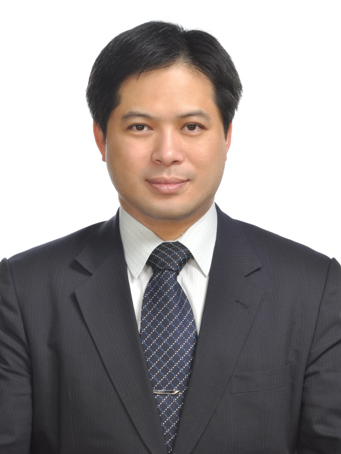 Dr. Ming-Ji Wu
Dr. Ming-Ji WuDirector General Department of Industrial Technology (DoIT) Ministry of Economic Affairs (MOEA), ROC |
| Research and Development Policy of Intelligent Robotics in Taiwan |
|
Abstract: The era of an aging society with low birth-rate and labor shortage has already arrived. To cope with the social and industrial impacts form the above trend, many advanced countries are devoted to research and development of intelligent robotics and expect this emerging industry will bring the economic growth. Taiwan government currently plans to apply technologies of intelligent robotics and automation to add values on its intelligent manufacturing and service industries in the future. For industrial robots, they will adopt many intelligent sensing and control technologies to cope with more complex and challenging production processes accompanied with the needs of high-mix/low-volume flexible manufacturing and problem of labor shortage. The development of service robots will focus their applications in the field of medical and tourism industries, and provide services through human-robot collaboration. Taiwan government has listed intelligent robotics as one of the national emerging industries. In the future, Taiwan will combine the resources from its industries, government, academia and research institutes, and commit these resources in the intelligent robotics research and its industrial-value creation. It is expected that these will equip Taiwanese manufacturing and service industries with higher productivity, efficiency and service quality. Biography: Dr. Ming-Ji Wu is the Director General of the Department of Industrial Technology (doit.moea.gov.tw), the government body charged with Taiwan¡¦s industrial technology policy and R&D project funding. He has been a key figure in drafting Taiwan¡¦s policy toward developing Hi-Tech related industries and technological innovations over the past decades. The Department of Industrial Technology (DoIT) was established in 1979 and with the mission “enabling innovations towards sustainable development”. Prior to his appointment as Director General of the DoIT in 2009, Dr. WU held engineer, senior engineer, section chief, deputy director, and director position of the Industrial Development Bureau from 1991-2007, and deputy director general of the DoIT from 2007-2009. As first line policy drafter of the MOEA, Dr. Wu has played an important role in Taiwan¡¦s Hi-tech related industries and technologies development. Dr. Wu received an MBA from University of Southern California, and Ph.D. in technology management from National Chengchi University. |
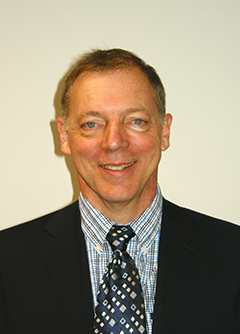 Prof. Thomas C. Henderson, Program Director
Prof. Thomas C. Henderson, Program DirectorComputer and Information Science and Engineering Directorate Information and Intelligent Systems Division, Robust Intelligence Cluster National Science Foundation Arlington, VA 22230, USA |
| The Robotics Research Roadmap and Initiative |
|
Abstract: The National Science Foundation has as its mission to promote the progress of science, to advance the national health, prosperity and welfare, and to secure the national defense. Its vision is to advance discovery, innovation and education beyond the frontiers of current knowledge, and to empower future generations in science and engineering. The CCC/CRA Robotics Roadmap (A Roadmap for US Robotics: From Internet to Robotics, 2009) sponsored by the NSF has recently been created to provide gdirection in the pursuit of research and development in this area. Currently, a major robotics initiative is being developed with robots as Co-Workers, Co-Inhabitants and Co-Defenders. These topics will be explored and examples of recent NSF-sponsored robotics work will be presented, as well as an assessment of current industrial practice and the implications of research for technology transfer. Biography: Thomas C. Henderson received the B.S. degree in Mathematics from Louisiana State University in 1973, and the Ph.D. degree in Computer Science from the University of Texas at Austin in 1979. He worked at DFVLR in Germany in 1980 and at INRIA (Roquencourt) in 1981. In 1982 he joined the faculty at the University of Utah where he is currently a Full Professor. From 1991-1997 he served as Department Chair of Computer Science, and was the founding Director of the School of Computing at Utah from 2000-2003. He was on sabbatical at INRIA (Sophia-Antipolis) in 1988, and at the University of Karlsruhe in 2003. In August 2010 he joined the NSF as a rotator from the University of Utah. He received the Utah Governor¡¦s Medal in Science and Engineering in 2000, and is a Fellow of the IEEE. |
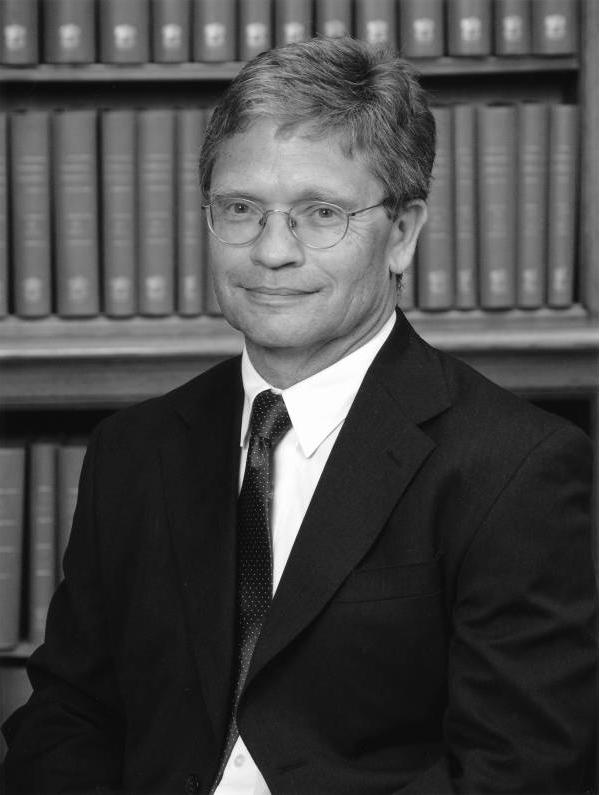 Dr.Hugh Durrant-Whyte
Dr.Hugh Durrant-WhyteAustralian Centre for Field Robotics (ACFR) The University of Sydney, Australia |
| Large Scale Commercial Applications of Field Robotics |
|
Abstract: Australia is a large, sparsely populated, resource rich country a long way from anywhere; and is consequently the ideal place to automate. The past decade has seen substantial technical development and investment in field robotics, especially focused on automation in applications such as cargo handling, mining, agriculture and marine environments; applications which are of central importance to the Australian economy. This talk will introduce a number of case studies describing how technical advances in the areas of perception, large machine control, and systems engineering that have enabled significant progress in the “science” of field robotics and which have led to significant commercial developments especially in the mining and logistics sectors. Biography: Hugh Durrant-Whyte received the B.Sc. in Nuclear Engineering from the University of London, U.K., in 1983, and the M.S.E. and Ph.D. degrees, both in Systems Engineering, from the University of Pennsylvania, U.S.A., in 1985 and 1986, respectively. From 1987 to 1995, he was at the University of Oxford, U.K. Since 1995 he has been with the University of Sydney where he founded and leads the Australian Centre for Field Robotics (ACFR). He is a Fellow of the Institute of Electrical and Electronic Engineers (FIEEE), of the Academy of Technological Sciences and Engineering (FTSE), and of the Australian Academy of Science (FAA) and of the Royal Society (FRS). |